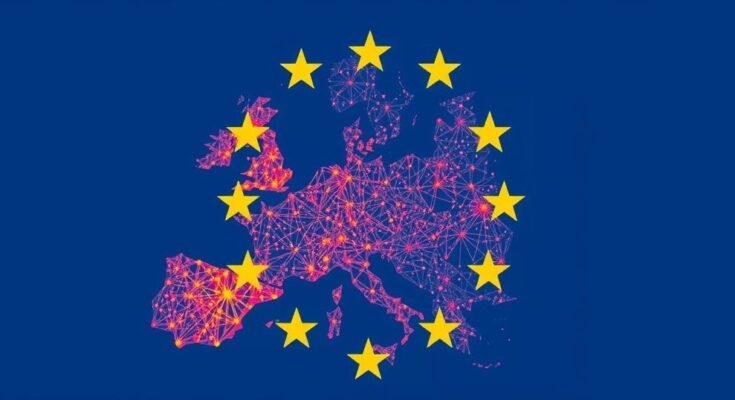Global heating has emerged as a pressing social issue, with the EU facing increasing scrutiny over its climate responsibilities amid COP29 discussions. As climate impacts intensify globally, an equitable approach to climate justice is essential, where those most affected by climate change receive necessary support. The EU’s position as a significant contributor to emissions poses challenges to the credibility of its ambitious climate policies, indicating a need for reforms that prioritize climate equity at the international level.
Global heating poses significant social challenges, necessitating urgent action from the European Union (EU) to address it. The ongoing United Nations Convention on Climate Change (COP29) in Azerbaijan aims to establish financial frameworks and national commitments to adhere to the Paris Agreement, specifically the critical target of limiting global warming to 1.5C. Despite the diminishing credibility of such gatherings, the need for substantial agreements to promote climate mitigation is more pressing than ever, as millions are already grappling with the impact of climate-related disasters.
Societal consequences of climate change amplify the disparity between those responsible for emissions and those who bear the brunt of its effects. The climate justice perspective seeks to highlight these inequities, pinpointing that those most affected are often the least equipped to combat the crisis. As the EU positions itself as a leader in climate policy, aspiring to reduce emissions by 55% by 2030 and achieve carbon neutrality by 2050, its trajectory suggests a troubling gap between aspiration and responsibility.
A recent study reveals that the EU has exceeded what its share of the global climate budget would permit, considering its historical emissions. Assessing various scenarios, it was found that in seven instances, the EU has already utilized its carbon budget, jeopardizing the possibility of adhering to the 1.5C increase threshold. This indicates the EU’s ambitious policies may not suffice in meeting global climate targets, posing challenges to equitable climate action.
Furthermore, the EU’s current strategies may not align with the principles of climate justice, as they potentially perpetuate inequalities that disproportionately affect vulnerable populations. Other major emitters also exceed their budgets, underscoring the collective responsibility for climate mitigation and adaptation. The importance of acknowledging social dimensions in climate discussions is paramount to achieving climate justice.
The current COP29 should prioritize integration of climate justice into its framework by mandating ambitious reduction targets reflective of both environmental limits and the disparate impacts of climate change. It is essential for the Global North, historically the highest emitters, to acknowledge their obligations in facilitating global climate actions. Thus, the principle of “common but differentiated responsibilities” as proposed by the United Nations should guide discussions and commitments at COP29, ensuring that the fight against climate change is equitable and just for all nations.
The ongoing global discourse surrounding climate change has led to an emphasis on social justice and equity in climate policy. The UN-sponsored COP meetings, including the current COP29 in Azerbaijan, focus on establishing commitments to mitigate climate change, addressing both financial and policy measures needed to adhere to international agreements such as the Paris Accord. The conversation highlights the significant disparity in responsibilities for climate issues and the unequal impacts of climate change, particularly on vulnerable populations. The EU has emerged as a key player in these discussions by setting ambitious goals but faces scrutiny regarding its past emissions and equitable resource allocation for climate initiatives.
In conclusion, addressing the multifaceted challenge of climate change demands a robust commitment to climate justice, particularly from dominant economic players like the EU. Current findings suggest that despite ambitious climate goals, the EU’s historical emissions and disproportionate use of the global budget indicate a failure to meet this responsibility. The imperative for COP29 is to reinforce targets that recognize the social aspect of climate disaster and ensure equitable contributions to climate action from all parties, thereby fostering a just transition for all affected communities.
Original Source: theconversation.com




